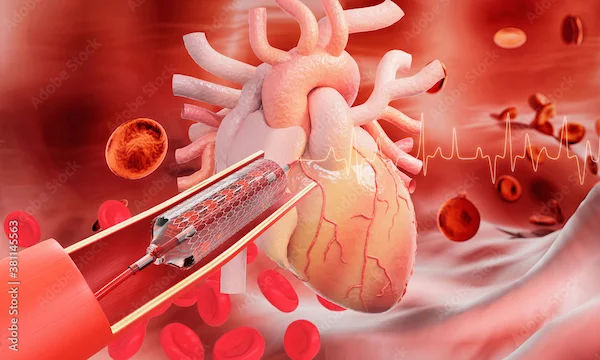How Long To Wear Chest Belt After Bypass Surgery?
Understand the importance of a chest belt after bypass surgery, how long to wear it, tips for comfort, and precautions to ensure safe recovery and proper sternum healing.

Written by
Last updated on 10th Jul, 2025

Introduction
Undergoing bypass surgery is a major event, and recovery requires patience and proper care. One common question patients have is: How long should I wear a chest belt after bypass surgery?
This article will guide you through the importance of a chest belt, how long you should wear it, and tips for a smooth recovery.
Why Is a Chest Belt Needed After Bypass Surgery?
Knowing why a chest belt is essential after surgery can help you take proper care during recovery.
After open-heart surgery, your sternum (breastbone) is cut and wired back together. A chest belt (or sternum support belt) helps:
Stabilise the sternum – Prevents unnecessary movement while healing.
Reduce pain – Supports the chest, making coughing, sneezing, or moving less painful.
Prevent complications – Helps avoid sternum separation or delayed healing.
How Long Should You Wear a Chest Belt After Bypass Surgery?
The recommended duration for wearing a chest belt can vary depending on individual recovery progress.
The duration varies based on your healing progress, but most doctors recommend wearing it for 4 to 8 weeks. Here’s a general guideline:
1. First 2-4 Weeks (Critical Healing Phase)
Wear the belt almost all the time, except while bathing.
Helps prevent sternal instability (when the breastbone shifts).
2. Weeks 4-6 (Gradual Reduction)
You may start removing it for short periods when resting.
Still wear it during activities like walking, coughing, or lifting light objects.
3. Weeks 6-8 (Final Phase)
Most patients can stop using the belt unless advised otherwise.
Some may need it longer if healing is slower.
Always follow your surgeon’s advice, as recovery varies from person to person.
Consult Top Cardiologists
Tips for Wearing a Chest Belt Comfortably
Using a chest belt properly ensures both comfort and healing support.
Wear it snug but not too tight – It should provide support without restricting breathing.
Place it correctly – Position it over the sternum, not too high or low.
Keep it clean – Wash it as per instructions to avoid skin irritation.
Use soft padding – If the belt rubs against your skin, place a thin cloth underneath.
What Happens If You Don’t Wear a Chest Belt?
Skipping or misusing a chest belt can affect your recovery process and cause complications.
Skipping the belt can lead to:
Sternal instability – The breastbone may not heal properly.
Increased pain – Movement can strain the healing area.
Delayed recovery – Longer healing time or complications like infection.
Other Recovery Tips After Bypass Surgery
Some additional precautions can make your post-surgery recovery smoother and safer.
1. Avoid Heavy Lifting
Do not lift anything heavier than 5-10 pounds for at least 6-8 weeks.
2. Follow a Heart-Healthy Diet
Eat fruits, vegetables, whole grains, and lean proteins.
Limit salt, sugar, and fatty foods to support heart health.
3. Stay Active (But Don’t Overdo It)
Short walks help circulation but avoid strenuous exercise.
Follow your doctor’s cardiac rehab programme if recommended.
4. Watch for Warning Signs
Contact your doctor if you experience:
Severe chest pain (not relieved by rest).
Fever or signs of infection (redness, swelling, pus at incision sites).
Difficulty breathing or dizziness.
When Can You Return to Normal Activities?
It is important to resume daily activities gradually to avoid stress on your healing chest.
Driving: Usually after 4-6 weeks (check with your doctor).
Work: Desk jobs may resume in 4-6 weeks, while physically demanding jobs may take longer.
Exercise: Gradually reintroduce light activities after 8-12 weeks.
Need Personalised Advice?
For the best recovery, consult your healthcare provider to receive tailored recommendations.
Every patient’s recovery is different. If you have concerns about your healing or chest belt use, consult your cardiac surgeon.
You can book a follow-up consultation with Apollo 24|7’s expert cardiologists for personalised guidance.
Conclusion
Wearing a chest belt after bypass surgery is crucial for proper healing. Most patients need it for 4-8 weeks, but always follow your doctor’s advice. Combine this with a healthy diet, light activity, and proper rest for the best recovery.
Stay patient—your body is healing, and taking the right steps now ensures a stronger heart for the future!
Consult Top Cardiologists
Consult Top Cardiologists
Dr. Praveen Kumar
Cardiologist
25 Years • MBBS, MD (Medicine), DM (Cardiology)
Ghaziabad
Navaanya wellness, Ghaziabad

Dr Yogendra Singh Rajput
Cardiologist
16 Years • MBBS, MD (General Madicine), DM (Cardiology)
Gurugram
Svasthya Child & Cardiac Care, Gurugram

Dr. Nataraja Setty
Cardiologist
21 Years • MBBS, MD (General Medicine), DM (Cardiology)
Bengaluru
Sapphire heart care clinic, Bengaluru
Dr. Sibashankar Kar
Cardiologist
10 Years • MBBS, DNB
Bhubaneswar
Hi-Tech Medical College & Hospital, Bhubaneswar
Dr. Dixit Garg
Cardiologist
10 Years • MBBS , DNB (General medicine) , DNB (cardiology)
Gurugram
Smiles & Hearts, Gurugram
Consult Top Cardiologists
Dr. Praveen Kumar
Cardiologist
25 Years • MBBS, MD (Medicine), DM (Cardiology)
Ghaziabad
Navaanya wellness, Ghaziabad

Dr Yogendra Singh Rajput
Cardiologist
16 Years • MBBS, MD (General Madicine), DM (Cardiology)
Gurugram
Svasthya Child & Cardiac Care, Gurugram

Dr. Nataraja Setty
Cardiologist
21 Years • MBBS, MD (General Medicine), DM (Cardiology)
Bengaluru
Sapphire heart care clinic, Bengaluru
Dr. Sibashankar Kar
Cardiologist
10 Years • MBBS, DNB
Bhubaneswar
Hi-Tech Medical College & Hospital, Bhubaneswar
Dr. Dixit Garg
Cardiologist
10 Years • MBBS , DNB (General medicine) , DNB (cardiology)
Gurugram
Smiles & Hearts, Gurugram




